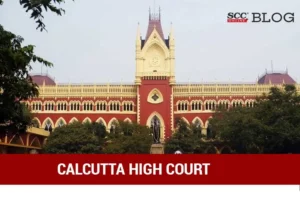Calcutta High Court: While dismissing the petitions seeking an extension of the arbitrator’s mandate to make and publish the awards under Section 29-A(4) of the Arbitration and Conciliation Act, 1996 (the Act), a single-bench comprising of Moushumi Bhattacharya,* J., held that Section 29-A(4) of the Act allows for the extension of the arbitrator’s mandate, but only while the mandate is still subsisting and once the mandate has terminated, this power cannot be invoked. The Court further held that once the specified timeframes under Section 29-A(1) or Section 29-A(3) expires, the mandate terminates, and no further extension is possible under Section 29-A(4).
Factual Matrix
The instant matter involves three separate arbitration petitions with nearly identical issues. The petitioners in all three applications have requested an extension of the mandate for the arbitrators to make and publish the awards. However, the respondents in all three cases have opposed any further extension of the mandates. These cases also involve proceedings related to the Corporate Insolvency Resolution Process (CIRP) initiated against the petitioner under the Insolvency and Bankruptcy Code, 2016 (IBC). The petitioner seeks to argue that the CIRP represents a break in the sequence under Section 29-A of the Act.
Moot Point
-
Can Court extend the mandate of the arbitrators under Section 29-A(4) of the Act, after the mandates have terminated?
-
Whether Court’s power to extend the mandate under section 29-A(4) applicable even if the application filed after the expiry of the period for making the award under Section 29-A(1) of the Act?
Petitioners’ Contentions
The petitioners contended that an application for extension of the arbitrator’s mandate is maintainable even if filed after the expiry of the time specified in Section 29-A(1) or Section 29-A(3) of the Act. The petitioners relied on Section 29-A(4) and asserted that the Court has the power to extend the period either before or after the expiry of the specified period. They contend that the Court should assess the sufficiency of the cause shown for extension, as outlined in Section 29-A(5). The petitioners also relied on the Law Commission reports and legislative intent to expedite the arbitration process.
Respondents’ Contentions
The respondents contended that the mandate of the arbitrator terminates by operation of law if the application for extension is not made within the mandate’s period as. The respondent emphasised that the use of the term “terminate” in Section 29-A(4) implies that the proceedings come to an end if the award is not made within the statutory time period.
Court’s Assessment
The Court delves into a detailed analysis of the statutory framework of the Arbitration and Conciliation Act, 1996, particularly focusing on Section 29-A. The Court’s key conclusions are as follows:
-
Section 29-A(4) and (5) do not provide for further extensions of the mandate after 18 months from the date of completion of pleadings unless the Court extends the period beyond 18 months upon an application and sufficient cause being shown.
-
Section 29-A introduced strict time limits for making awards and the concept of mandate termination if the award is not made within the prescribed statutory timelines.
-
The Court concluded that under Section 29-A(4), the Court is empowered to extend the mandate of the arbitrator only if an application is made for extension during the subsistence of the mandate under Section 29-A(1) or Section 29-A(3). The Court emphasised that the mandate must be in existence when the application for extension is made.
-
The Court rejected the arguments based on reviving the mandate after termination and emphasised that the mandate does not automatically revive post-termination. The Court held that the termination of the mandate under Section 29-A(4) is a jurisdictional issue, and an award made after the mandate terminates would be considered void.
-
The Court also addressed the concerns about recalcitrant litigants, and noted that Section 29-A(6) allows for the substitution of arbitrators and the continuation of proceedings even if a party refuses to consent to an extension.
Court’s Decision
The Court held that Section 29-A(4) of the Act requires that an application for extending the arbitrator’s mandate must be made during the subsistence of the mandate. If the application is not made within this period, the mandate terminates by operation of law, and any subsequent award would be void.
The Court dismisses the petitions seeking an extension of the arbitrator’s mandate as they were filed after the termination of the mandates.
[Rohan Builders (India) (P) Ltd. v. Berger Paints India Ltd., A.P. 328 of 2023, order dated 04-09-2023]
*Judgment by Justice Moushumi Bhattacharya
Advocates who appeared in this case :
Mr. Soumya Roy Chowdhury, Mr. Chayan Gupta, Mr. Sarosij Dasgupta, Ms. Susrea Mitra, Mr. Ritesh Ganguly, Mr. Ramanuj Ray Chaudhuri, Mr. Rudraman Bhattacharya, Mr. Ratul Das, Mr. Sourajit Dasgupta, Mr. Souvik Mazumdar, Counsel for the Petitioners
Mr. Anirban Ray, Mr. Debraj Sahu, Mr. Snehasish Sen, Mr. Sayantan Bose, Ms. Ankita Choudhury, Counsel for the Respondent/State

